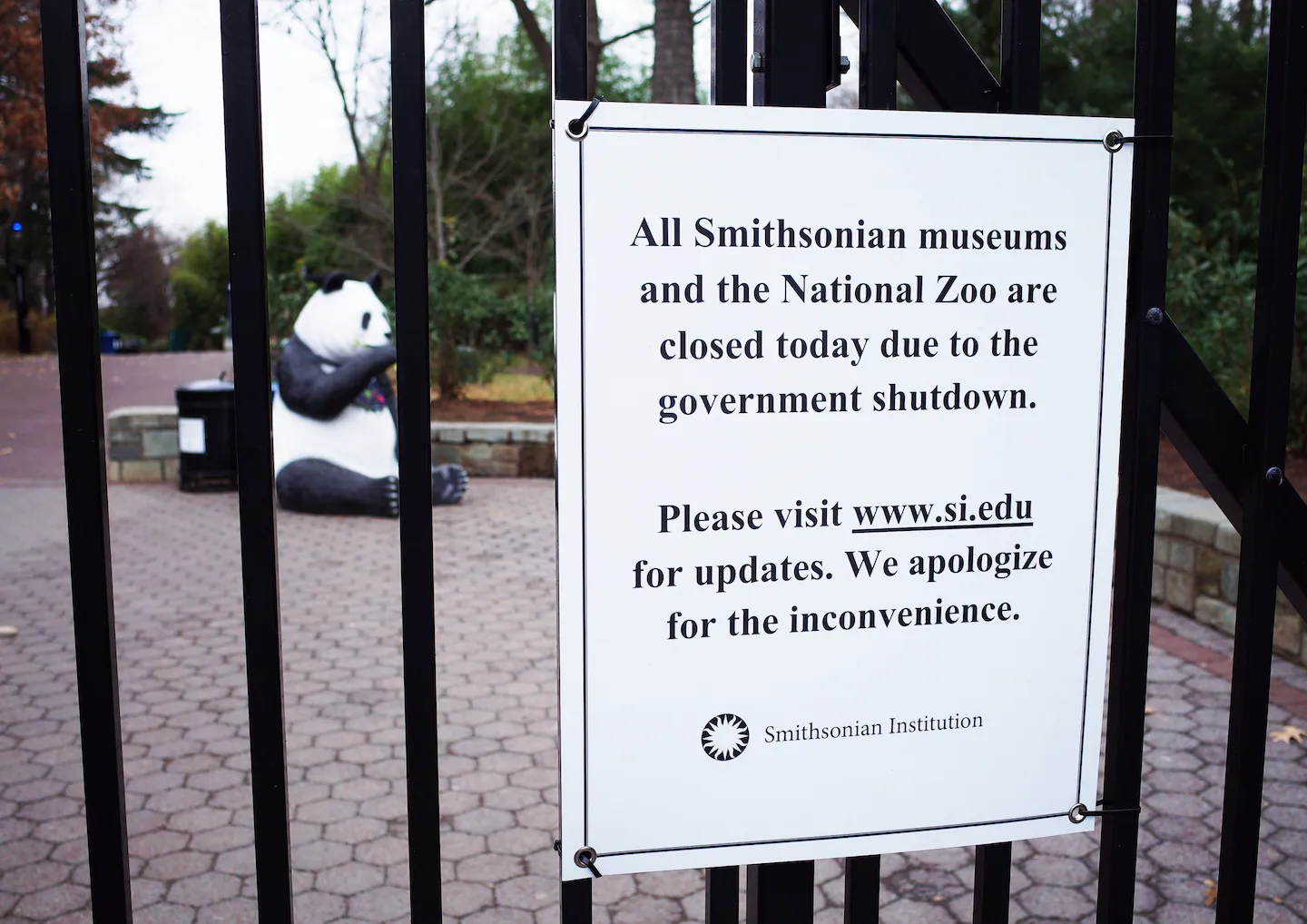
Write to us at startingpoint@globe.com. To subscribe, sign up here.
Absent an unforeseen twist, the federal government will shut down at midnight.
Shutdowns happen when Congress fails to meet its deadline to fund federal agencies. If it happens, tonight’s will likely be because Senate Democrats are insisting that any funding bill extend the expiring tax credits that make health insurance through Obamacare more affordable, which most Republican lawmakers oppose extending.
Here’s a guide to what a shutdown could mean for Massachusetts and New England.
Mail carriers will keep delivering packages, TSA agents will keep screening travelers, troops will remain at their posts, and other services government agencies deem essential will go on uninterrupted — although the workers who perform them won’t get paid until the shutdown ends.
Other federal programs — like Social Security, Medicare, and veterans health benefits — will also continue. But they could become harder for Americans to access if the workers who answer phones, issue Medicare cards, or provide career counseling for veterans are furloughed.
Still, it’s called a shutdown for a reason. Agency functions that will cease if funding lapses include:
The Environmental Protection Agency will stop inspecting drinking water and cleaning up contaminated sites;
The Food and Drug Administration will stop inspecting most farms and other facilities;
The Small Business Administration, which provides about half a billion dollars to Massachusetts companies annually, will stop processing new loan applications;
The National Institutes of Health will delay scientific research, further straining a Massachusetts industry already hurt by President Trump’s funding cuts.
Some federal programs that will initially stay open could close if the shutdown lasts a while. Food stamps and Head Start, an education program for low-income children, could run out of money. So could WIC, a $7 billion food-voucher program for low-income mothers and young children that serves about 126,000 Massachusetts residents. If the shutdown lasts past Friday, it could delay the release of federal data on how many jobs the economy created last month, which the Federal Reserve uses to set fiscal policy.
Other impacts are less certain. Bathrooms and visitors centers at national parks will close, but some parks could stay open. The federal government oversees more than a dozen monuments, historic sites, and trails throughout New England, including Acadia National Park in Maine. The last shutdown, a record 35-day impasse that started in late 2018, partially closed Acadia during winter. A shutdown now could curtail a lucrative fall visitor season, denting revenues for a park that contributed $685 million to the local economy in 2023.
Some federal employees, including about 16,500 active-duty troops stationed in New England, will have to work without pay. Everyone not employed in a critical role such as federal law enforcement or air traffic control will effectively go on unpaid leave. As of last year, there were about 25,500 civilian federal workers in Massachusetts, plus another 33,600 in the other New England states.
All will get back pay, but not until the shutdown ends. During the last one, civilians opened a food pantry on the Coast Guard base in Boston for Guard employees. Still, some federal workers told my DC-based Globe colleagues that they would prefer a shutdown, noting that the administration has already targeted many of them for layoffs.
The fate of federal workers could be the biggest difference from past shutdowns. The Trump administration has threatened to fire nonessential federal employees en masse if funding lapses, which could spike the already rising unemployment rate.
Other economic consequences are also possible. The last shutdown cost the economy about $11 billion, and federal money supplies roughly a quarter of Massachusetts’ $61 billion budget. Governor Maura Healey’s administration has told agencies to create contingency plans.
Then there are the political costs. Americans view shutdowns as a sign of government dysfunction, but who they blame can determine how shutdowns end. Last time, most faulted Trump and his party after he refused to sign a spending bill that didn’t include money for a southern border wall; he eventually relented.
Early polls suggest most voters want lawmakers to extend the Obamacare subsidies (which Vice President JD Vance and other top Republicans falsely claim would go to illegal immigrants) and that more Americans would blame Republicans for a shutdown. It’s certainly possible that lawmakers will reach a deal before tonight’s deadline, but a meeting yesterday between Trump and both parties’ congressional leaders ended without one. If there is a shutdown, the blame game will begin in earnest.
🧩 5 Down: Elderly | 🌥️ 73° A warm goodbye to Sept.
Striking out: For hotels near Fenway Park, a Red Sox-Yankees playoff series usually means good business. But a new Wild Card playoff format this year means the entire series will happen in New York, leaving Boston businesses feeling snubbed.
ICE in Massachusetts: Fear of deportation has contributed to hundreds of students leaving Chelsea public schools this year, the district’s biggest enrollment drop in years.
Lagging behind: Massachusetts studentscontinue to underperform prepandemic test scores in math, English, and science. See how your school district did.
Bad sign: Quincy officials say a petition to roll back a $126,000 raise for the city’s mayor failed to collect enough certified signatures to make the ballot. The petition’s supporters accused the city of botching the signature verification process and is considering suing.
Electing sheriffs: For 170 years, Massachusetts voters have been empowered to pick county sheriffs. Allegations of misusing campaign funds, drunken driving, and extortion against three sheriffs have some voters questioning whether they should.
Going south: More high school graduates from the Northeast are attending Southern colleges, lured by sorority rush TikToks, tailgates, and in some cases cheaper tuition.
Costly mistake: Lourenço Garcia, an assistant superintendent in Revere who’s a finalist to become superintendent of Cambridge Public Schools, put $751,500 into what he later called a cryptocurrency “scam.” Then he sued his bank for letting him do it.
Payday: YouTube, which Google owns, will pay $24.5 million to settle a lawsuit Trump filed after YouTube suspended his account following the Jan. 6 attack, becoming the latest company to pay him. (WSJ 🎁)
Rewriting history: Globe art critic Murray Whyte visited the eight Smithsonian museums the White House has targeted for review. He saw darkened galleries and ominous signs.
Israel-Hamas war: Trump and Israeli Prime Minister Benjamin Netanyahu presented a plan to end the fighting and free hostages held in Gaza in exchange for Palestinian prisoners. If Hamas rejects the proposal, which Arab and Muslim leaders endorsed, Trump said Israel would have his “full backing” to continue the war. (Axios)
By Teresa Hanafin
🏃🏻♂️ Running man: A 20-year-old Mass. native just became the youngest male to finish all six Abbott World Marathon Majors.
⚾️ It’s not just the wins: Walk-up songs and other musical moments have also pumped up Red Sox players and gotten the Fenway Faithful grooving this season.
🚶♀️➡️🏃🏻♀️➡️🚶♀️➡️🏃🏻♀️➡️ ‘Jeffing’? If walking feels ineffective and running is too much, try alternating them in one outing. It may help you build endurance, run faster, and move more. (HuffPost)
🚸 Kid independence: Want to let your child walk the dog or walk to school? Murky laws are hindering parents’ ability to give their kids the kind of independent childhood that experts say they need.
🐟 David and the Goliaths: Here’s the story of that brief time that tiny Lake Champlain was actually one of the Great Lakes. (Brave Little State)
🧑🧑🧒 Miss Conduct Classic: These partners plan to adopt, but when they tell people, all too often the good wishes are followed by some sort of adoption horror story. How to handle?
Thanks for reading Starting Point.
This newsletter was edited by Teresa Hanafin.
❓ Have a question for the team? Email us at startingpoint@globe.com.
✍🏼 If someone sent you this newsletter, you can sign up for your own copy.
📬 Delivered Monday through Friday.



